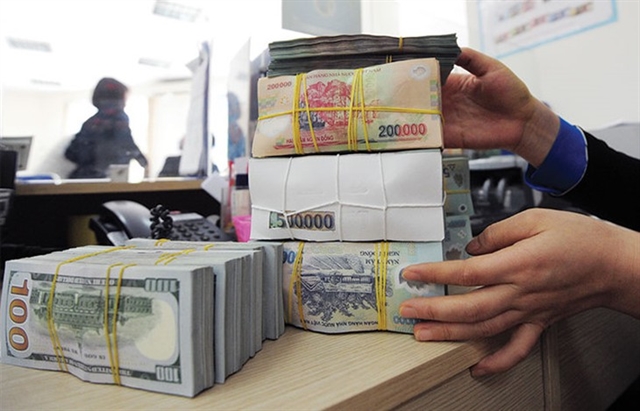Establishing a debt exchange has been earmarked as a key task of the State-run Viet Nam Asset Management Company (VAMC) over the next five years, a good signal for the formation of long-waited debt trading floor to resolve bad debts..

Establishing a debt exchange has been earmarked as a key task of the State-run Viet Nam Asset Management Company (VAMC) over the next five years, a good signal for the formation of long-waited debt trading floor to resolve bad debts.
Under VMC’s development strategy over the next five years, recently approved by the State Bank of Viet Nam, VAMC will complete the foundation of the debt exchange and put it into operation in the 2021-25 period.
The central bank also asked VAMC to develop a debt and asset data centre which would be connected with the National Credit Information Centre of Viet Nam (CIC) and credit institutions. This would develop an online debt auction platform.
In order to improve VAMC's financial capacity for the establishment of the debt exchange, the central bank will propose to authorities to increase the charter capital of VAMC to reach VND10 trillion (US$431 million) in 2021-25 period, from currently VND2 trillion.
As Viet Nam had not had a professional debt exchange, the debt trading market saw the participation of just few companies, including VAMC, Viet Nam Debt and Asset Trading Corporation and asset management companies of commercial banks. Therefore, many debts were not easily resolved.
At the Government’s meeting in November, Deputy Governor of the State Bank of Viet Nam Dao Minh Tu said the central bank would license debt exchange when technology and other conditions allowed, which would push the development of a bad debt trading market in Viet Nam. He also stressed that VAMC’s debt trading was very robust.
With a debt exchange, deals would be more transparent, which would allow commercial banks to promote the sale of bad debts and handle them more efficiently.
The debt trading floor would also help attract domestic and foreign investors who remained reluctant over the lack of legalities.
Nguyen Quoc Anh from the University of Economics, HCM City said that founding a debt exchange was an inevitable trend in the integration but the core factor was creating conditions for the market to attract a large number of participants, he said.
Debt exchanges in foreign countries drew many participants, including private investors, venture capital funds and enterprises, Quoc Anh said, adding that Viet Nam should study models of foreign debt exchanges in building a legal framework.
He stressed that thoroughly handling bad debts was important to attract the participation of private investors in the debt trading market.
An appropriate debt resolving mechanism was needed to attract investors, including foreign ones, economic expert Dinh The Hien said.
Now there were many types of debts, Hien said, adding that all types of debts being put into the exchange at the same time would not be effective in the early stage. Hien said debts mortgaged by real estate assets should be piloted first. — VNS





